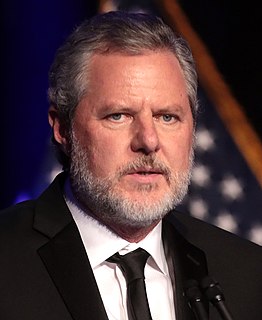A Quote by Sergei Lavrov
I wouldn't even go into the history of the last days of the Soviet Union, the withdrawal from Europe, and what promises were given at that time, because those were oral promises, and our leaders of that time strongly believe that, like in ancient Russia, a word given is better than any treaty.
Related Quotes
In the first place, you shouldn't believe in promises. The world is full of them: the promises of riches, of eternal salvation, of infinite love. Some people think they can promise anything, others accept whatever seems to guarantee better days ahead, as, I suspect is your case. Those who make promises they don't keep end up powerless and frustrated, and exactly the fate awaits those who believe promises.
In fact, we haven't ever really recalibrated our foreign policy commitments since the end of the Cold War. We still have alliances throughout Asia and across Europe that were devised to tame the Soviet Union, which, last time I checked, ceased to exist more than 20 years ago. Today, of course, we have a commitment to go to nuclear war with Russia in case Russia invades Latvia. To me, that's complete and utter nonsense. There ought to be a reconsideration of our posture in every region of the world.
European Union partners never said European Union partners're going to renege on any promises, European Union partners said that European Union partners promises concern a four-year parliamentary term, european Union partners will be spaced out in an optimal way, in a way that is in tune with our bargaining stance in Europe and also with the fiscal position of the Greek state.
Candidates run for election on campaign promises, but once they're elected they renege on those promises, which happened with President [Barack] Obama on Guantánamo, the surveillance programs and investigating the crimes of the Bush administration. These were very serious campaign promises that were not fulfilled.
Why were the Europeans bothered about the Soviet Union at all? It was nothing to do with us. China had nothing to do with us. Why were we not building, without reference to the Soviet Union, a good society in our own countries? But no, we were all - in one way or another - obsessed with the bloody Soviet Union, which was a disaster. What people were supporting was failure. And continually justifying it.
Back in 1956, we signed a treaty and surprisingly it was ratified both by the Supreme Soviet of the Soviet Union and the Japanese Parliament. But then Japan refused to implement it and after that the Soviet Union also, so to say, nullified all the agreements reached within the framework of the treaty.
What does nonalignment mean? It means we don't belong to any military bloc and that we reserve the right to be friends with any country, independently of the influence of any country. All this has remained unchanged after the signing of the Indo-Soviet treaty, and others can say or think what they like - our policy won't change because of the Soviet Union.
My mother was really involved with the Refusenik campaign with Soviet Union Jews. They would come and stay at our house, some of them, after they managed to get out of the Soviet Union at the time. There were things that were Jewish-related happening in my house quite consistently, but it was much more from a kind of activist standpoint.
25 million of Russian people suddenly turned out to be outside the borders of the Russian Federation. They used to live in one state; the Soviet Union has traditionally been called Russia, the Soviet Russia, and it was the great Russia. Then the Soviet Union suddenly fell apart, in fact, overnight, and it turned out that in the former Soviet Union republics there were 25 million Russians. They used to live in one country and suddenly found themselves abroad. Can you imagine how many problems came out?






































